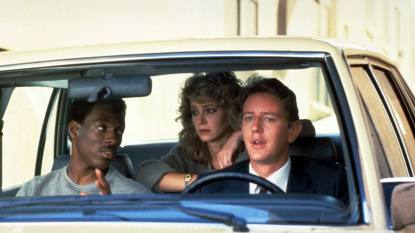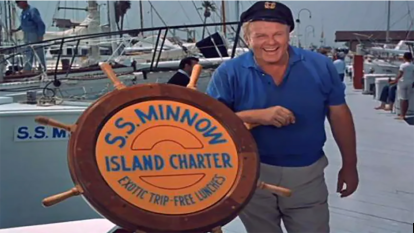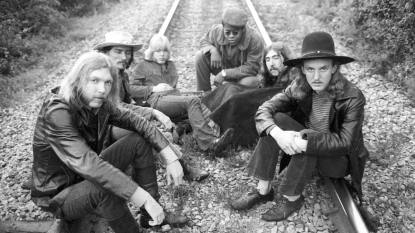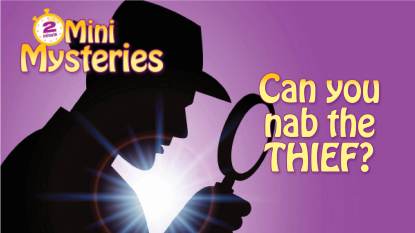Gag Me With a Spoon! The Weird Stories Behind Your Favorite ’80s Idioms
They’re like, totally tubular.

The ’80s was a time of excess: big hair, dramatic makeup, colorful clothes, and bold pop music loaded with synthesizers. Even the way people talked was an extension of this heightened style. Every decade has its slang and idioms — think “Groovy” and “Far out” in the ’60s or “Talk to the hand” and “As if!” in the ’90s — and the Reagan era is no exception. As with many idioms, a lot of the defining ’80s sayings came from popular culture and represented different social groups; valley girls, slackers, and rebels among them. Want to return to a simpler time by using ’80s slang in your own future conversations? Keep reading. We’ve collected seven of the most memorable idioms of the decade, plus the wacky origin stories behind them.
Gag Me With a Spoon
What it means: I’m disgusted.
Its origin: “Gag me with a spoon” was one of many ’80s phrases rooted in the distinct dialect of Valley girls. These early-’80s teens lived in California’s San Fernando Valley and were known for hanging out at the mall and speaking in a breezy cadence peppered with the words “like” and “totally.” Valley girls were also fond of phrases that seemed to end with a question mark, even when they weren’t questions; this is known as uptalk, and it’s often associated with young women. “Gag me with a spoon” is a Valley girl phrase used to indicate disgust — as being gagged with a spoon definitely sounds unpleasant. The idiom gained broader recognition through avant-garde rocker Frank Zappa’s 1982 hit “Valley Girl,” which featured his teen daughter, Moon, doing her very best Val-speak.
Totally Tubular
What it means: That’s awesome.
Its origin: The word “tubular,” which means “having the form of or consisting of a tube,” was first used in 1673, according to Merriam-Webster. Over 300 years later, the word took on a whole new meaning. In the ’60s and ’70s, surfers started using it to describe “a hollow, curling wave, ideal for riding,” according to the Online Etymology Dictionary. Surfing has long been a popular pastime in sunny California, and the phrase was soon picked up by Valley girls, in the process losing its original reference to tubes. Something that’s “totally tubular” isn’t tube-shaped — rather, it’s just a creative way to express approval.
Totally Gnarly
What it means: That’s disgusting OR That’s excellent.
Its origin: Like “totally tubular,” “totally gnarly” dates back to the 17th century and has its slang roots in surf culture. In its original iteration, gnarly referred to things that were knotty and rugged, and surfers claimed the word to describe dangerous waves. The 1982 teen movie Fast Times at Ridgemont High launched “gnarly” into the mainstream, as the lovable slacker Spicoli (Sean Penn in one of his first on-screen roles) spoke the word in an unforgettable fashion. But contrary to what you might assume, something that’s “totally gnarly” isn’t necessarily bad — it all depends on the context. As the Online Etymology Dictionary reports, “it meant both ‘excellent’ and ‘disgusting.'” Ah, the nuances of language!
Take a Chill Pill
What it means: Calm down.
Its origin: This rhyming idiom came to prominence on college campuses early in the decade, says Green’s Dictionary of Slang. The idea of a “chill pill” brings medication to mind, and according to Atlas Obscura, chill pills were a real thing back in the 19th century. These pill formulas, which a person could apparently concoct at home using some seriously suspicious-sounding ingredients, were said to remedy the chills that came from fevers. The ’80s idiom isn’t about these specific pills, though, and rather uses “chill” in the modern sense that’s rooted in describing things as “cool” (which came from the mid-20th-century jazz scene). The phrase “take a chill pill” is basically telling someone to “be cool” or “relax.” Some people have also claimed that the phrase was related to medication for ADHD that was gaining popularity around the time.
Couch Potato
What it means: A lazy person who spends most of their time sitting on the couch watching TV.
Its origin: According to The New Yorker, this phrase was first used in 1976, when a man named Tom Iacino called his friend, Robert Armstrong, and asked “Hey, is the couch potato there?” when Armstrong’s girlfriend picked up. Rather than get offended and hang up the phone in a huff, Armstrong got Iacino’s permission to trademark the phrase, and it took off from there. In 1983, Armstrong and writer Jack Mingo published The Official Couch Potato Handbook, a comical guide to the lazy lifestyle. Soon enough, there were even couch potato toys.
She’s Bodacious
What it means: She’s attractive and/or She’s outstanding.
Its origin: “Bodacious” is a portmanteau of the words “bold” and “audacious,” and was originally coined in the 19th century. While the ’80s usage typically refers to female attractiveness, the word initially meant remarkable and noteworthy, says Merriam-Webster. “Bodacious” was a favorite phrase of Citizens Band radio users in the ’70s and often used in the classic comic strip Snuffy Smith. In 1989, the sci-fi comedy Bill & Ted’s Excellent Adventure, which centered on a pair of silly but sweet teen boys, made “bodacious” into a widespread slang word. To hear the movie’s stars Keanu Reeves and Alex Winter describe it, something that’s bodacious is “outstandingly outstanding.” Who could argue with that?
What’s Your Damage?
What it means: What’s your problem?
Its origin: “What’s your damage?” is meant to be asked in a tone dripping with sarcasm. The saying originated in Heathers, a cult-favorite 1989 teen movie starring Winona Ryder and Christian Slater. Daniel Waters, the movie’s screenwriter, revealed to Entertainment Weekly that the phrase was not an original creation. “It’s embarrassing,” he admitted. “I stole from when I was a camp counselor and one of my little camper girls, Jamie, used to say, ‘What’s your damage?’ I just completely stole that from her.” Heathers is one of the most quotable movies of the ’80s, and “What’s your damage?” quickly became a go-to question for fed-up teens everywhere.
If any of these idioms were to make a comeback, we think that would be totally radical (which is a good thing!). Whether you used these phrases back in the day or want to try them out for the first time now, there’s no denying that ’80s slang remains pretty darn bodacious.













